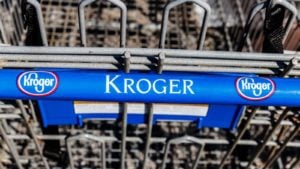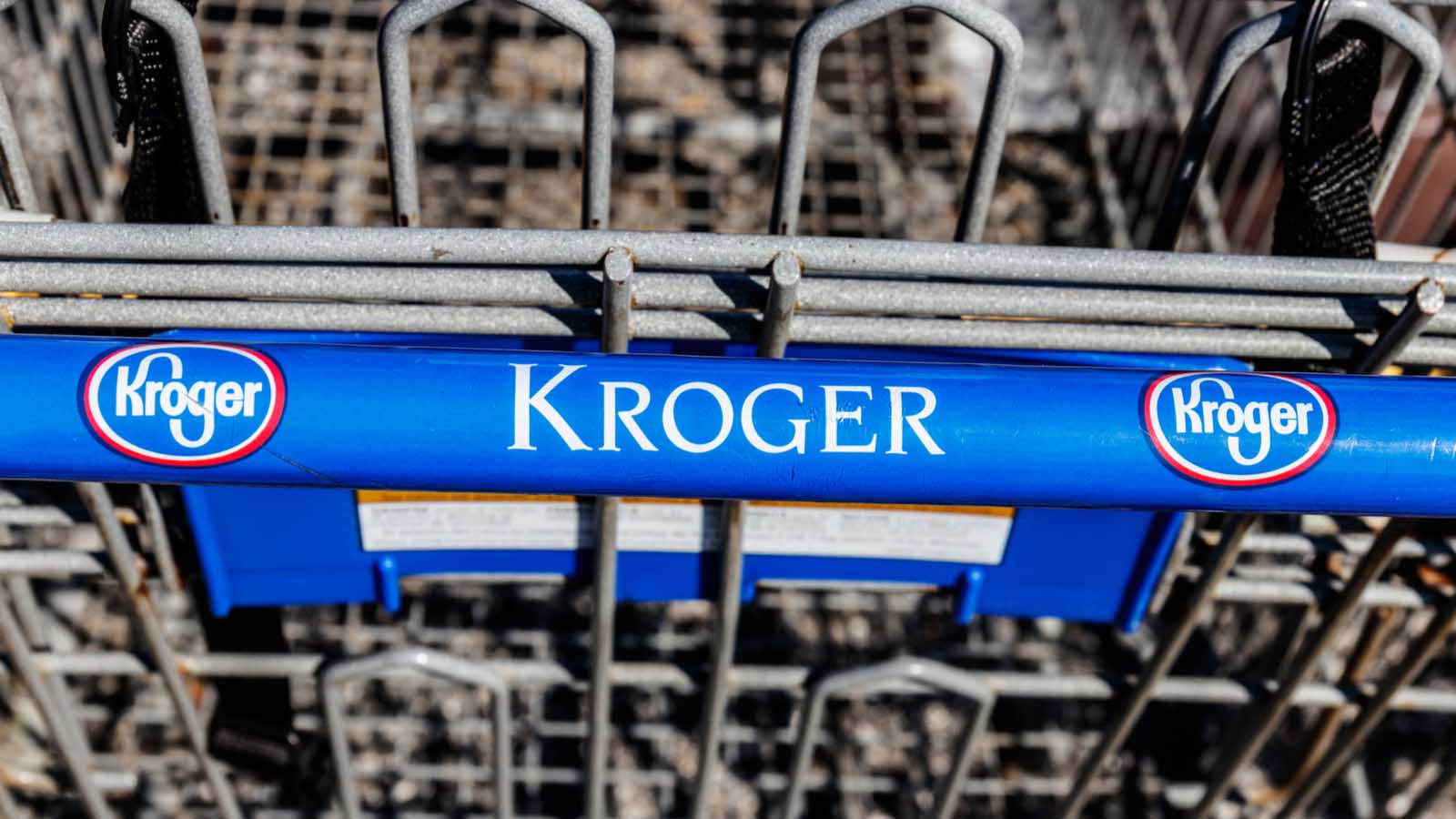Kroger (NYSE:KR) stock was underperforming for years before the novel coronavirus hit. No more. It opens for trade on Aug. 7 at about $35 a share. That’s a 21% gain for 2020, against 2.3% for the S&P 500 index, and 11% for Walmart (NYSE:WMT), the country’s biggest grocer.

Kroger operates under dozens of brands, from Fred Meyer in Portland to Ralph’s in Los Angeles, and from King Soopers in Denver to Harris Teeter in North Carolina. As a result, most people don’t realize it’s America’s second-biggest grocery chain, with 10% of the U.S. market. Its share is twice that of Costco Wholesale (NASDAQ:COST), which has 5%, and five times that of Amazon’s (NASDAQ:AMZN) Whole Foods, at 2%.
Thanks to the virus, this fact has gotten through investors’ heads and made Kroger a hot stock.
Hot Company
During the April quarter this also made Kroger a hot company. Sales zoomed to $41.55 billion. That’s a gain of 11.5% over the same quarter of 2019. Profits also rose sharply, to $1.54 per share, up from 95 cents a year earlier.
Can it do that again? The spring quarter is usually Kroger’s best. Analysts are only expecting revenue of $29.3 billion when Kroger next reports earnings Sept. 17. That would still be 5% ahead of last year. Net income is expected to be 50 cents per share, up from 37 cents last year.
Kroger has gone from being the forgotten store of the middle class to essential during the pandemic. The center of the market, where packaged goods like canned meat, cereal, and ketchup are located, has gone from cold to hot as well.
The virus also has the media talking about Kroger again, often in the same breath as Walmart. Kroger has been bottling its own milk for years, a trend that has destroyed dairy aisle “name brands” like Dean Foods and Borden. Suddenly, the media notices.
When talking about mask requirements, Kroger is also being mentioned in the same breath as Walmart. The same is true with the coin shortage. Kroger had always been there. It’s just being noticed now.
After the Pandemic
The question for investors is, what happens after the pandemic passes? Will Kroger go back to being the forgotten home of the forgotten middle class?
That depends on what the grocer does now.
Kroger didn’t bring out its first unified brand message until late last year. It’s now combining all advertising under a single national team, which will handle all channels, and all Kroger brands. This includes streaming and internet-based ads, where Kroger data is being used to target ads on Roku (NASDAQ:ROKU) streaming boxes.
More controversial are Kroger’s plans for home delivery. These still focus on automated warehouses from Ocado Group (OTCMKTS:OCDDY), a British company it partnered with two years ago. It’s a contrast to Walmart, which has been handling online fulfillment directly through its stores. Kroger stores do pick-up, too. They just don’t do it as well. They also don’t do it profitably. Ocado warehouses are designed to do it profitably.
The Bottom Line on Kroger Stock
I spent much of last year pounding the table for Kroger stock, writing that it wasn’t being appreciated and praised the Ocado deal.
This was thanks to Kroger’s performance through the 2010s. It still trades for 10% less than it did five years ago. From a high of $41 a share in late 2015 it fell to a low of $20 in 2017.
Now it’s closer to fair value. The price-to-earnings ratio is 13.5, and the 18 cents per share dividend yields 2.05%. Whether its pandemic gains are temporary or permanent is still unknown, but the slow-motion turnaround looks real.
Dana Blankenhorn has been a financial and technology journalist since 1978. His latest book is Technology’s Big Bang: Yesterday, Today and Tomorrow with Moore’s Law, essays on technology available at the Amazon Kindle store. Write him at [email protected] or follow him on Twitter at @danablankenhorn. As of this writing he owned shares in AMZN.
